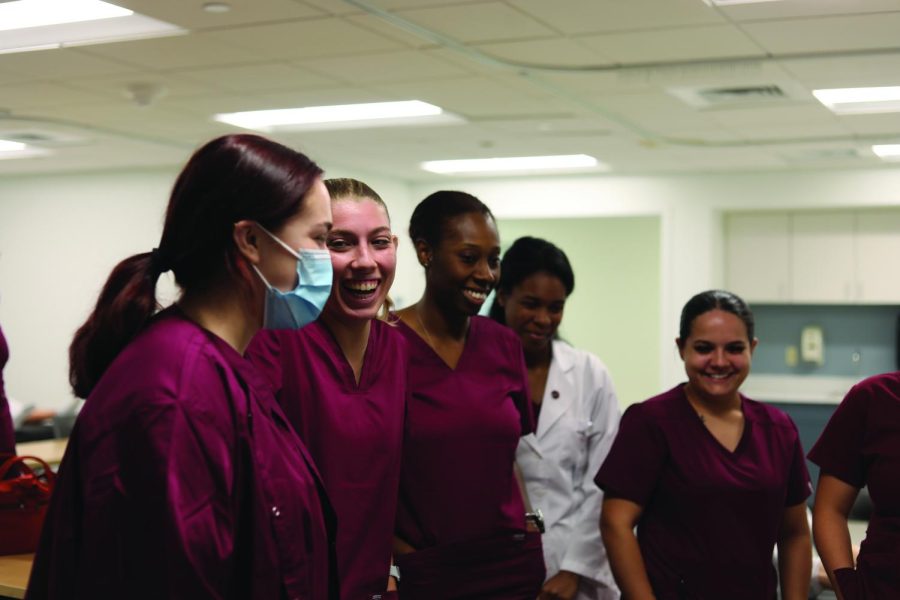School of nursing introduces new programs
Nursing students observe a demonstration for class on Aug. 25, 2022. The nursing program at Loyola has continued to grow.
May 6, 2023
In a state that has a severe nurse shortage and one of the highest maternal mortality rates in the country, Loyola’s nursing program forges ahead with new and expansive opportunities for its students.
The School of Nursing is offering multiple new programs and degrees in the fall, including an accelerated bachelor’s of science in nursing, a master’s degree in nursing and nurse-midwifery, and a dual program in nurse anesthesia and adult-gerontology acute care.
One of the new programs that have been developed this semester is the accelerated bachelor of science in nursing program, where students can apply previous academic experience to earn their degree in 17 months. In this hybrid program that could combat the nurse shortage quickly, there is synchronous learning and hands-on clinical experience.
But Burke said this is not a program for the faint of heart. With an accelerated program comes many responsibilities.
“It’s a lot of work and a whole lot of time commitment,” she said. “You cannot work outside of this program.”
The program started its pilot in January with a small cohort of students, and both Burke and Collins agreed that it’s going well. With students of all different backgrounds, from chefs to business majors, Collins said this program is for anyone who wants to become a nurse, fast.
Once you finish your accelerated nursing program, you can come back as a registered nurse and go into one of the school’s advanced nursing programs. The school will be offering a few new tracks in the fall, such as the dual program in nurse anesthesia and adult-gerontology acute care and the midwifery program.
Within 36 months, students can graduate with a doctorate in nursing practice and sit for both nurse anesthesia and adult-gerontology acute care certifications. According to Burke, Loyola will be the second program in the country to offer this.
The midwifery master’s degree program takes five semesters to finish, and students can enroll all year round. The courses are all online and taught synchronously, except for the supervised practicum work.
Burke and Collins hope that the midwifery program changes the trajectory of women’s healthcare in Louisiana.
Louisiana has the highest rate of maternal mortality at 58.1 deaths per 100,000 births, according to an analysis done by USA Today. Maternal mortality means women who die during pregnancy and birth, and the second highest neonatal mortality rate, which is babies who die during pregnancy or birth.
Collins said this rate is much more severe with women of color.
“They have such a higher rate of death and bad outcomes during pregnancy and birth,” Collins said. “Midwives are a solution to that.”
Midwives take care of women and their babies before, during, and after childbirth.
“We can make a difference in health care in Louisiana with these programs,” Burke said. “It’s so hand in glove with the Jesuit values when it comes to caring for the whole person.”







